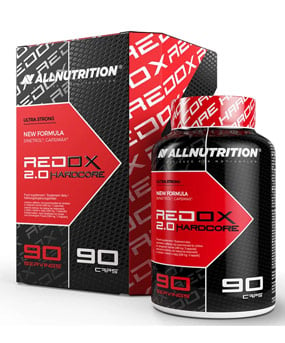...
Witaj, przygotowaliśmy kilka tematów które mogą Cię zainteresować:
PRZYSPIESZ SPALANIE TŁUSZCZU!
Nowa ulepszona formuła, zawierająca szereg specjalnie dobranych ekstraktów roślinnych, magnez oraz chrom oraz opatentowany związek CAPSIMAX®.
Sprawdź
...
Napisał(a)
Witam,
mamy specjalny dział:
https://www.sfd.pl/Badania_Naukowe-f405.html
ale wczesniej warto byloby wrzucic choc abstrakt tego badania, bo trudno powiedziec kto to przeprowadzał, jak na kim itp...
mamy specjalny dział:
https://www.sfd.pl/Badania_Naukowe-f405.html
ale wczesniej warto byloby wrzucic choc abstrakt tego badania, bo trudno powiedziec kto to przeprowadzał, jak na kim itp...
...
Napisał(a)
To proszę o przerzucenie do działu Badania Naukowe ;)
Badania przeprowadzał Australijski Instytut Sportu.
Jak i na kim, jest załączone w tabelce.
Badania przeprowadzał Australijski Instytut Sportu.
Jak i na kim, jest załączone w tabelce.
...
Napisał(a)
Szukałem tekstu abstraktu dość intensywnie, niestety odnośnie tych badań nie udało mi się go znaleźć. Ostatnio dość ostro wertuję tę stronę, jeżeli się na coś natknę zaraz wrzucę.
...
Napisał(a)
Tabela 16.5
Studium nr 1
Inosine supplementation has no effect on aerobic or anaerobic cycling performance.
McNaughton L, Dalton B, Tarr J.
Sports Science Dept., Kingston University, Kingston upon Thames, Surrey, England.
Abstract
The two basic aims of this study were to add to the limited literature concerning Inosine as an ergogenic aid, and to determine the effects of Inosine supplementation over a period of 5 and 10 days, at a dosage of 10,000 mg.d-1 on measures associated with aerobic and anaerobic performance. Seven trained, volunteer male subjects (body mass = 63.0 +/- 8.7 kg, VO2max = 67.9 +/- 3.3 ml.kg-1.min-1) participated in this study. The subjects completed three test sessions, each comprising three tests (5 x 6-s sprint, 30-s sprint, and 20-min time trial). Supplementation was carried out in a random, double-blind manner, and the test sessions were undertaken prior to (Baseline, B), on Day 6, and on Day 11. Blood was sampled prior to supplementation as well as on Days 6 and 11 and was analyzed for uric acid and 2,3 DPG. An analysis of the data indicated no performance benefit of supplementation and no improvement in 2,3 DPG concentration. Uric acid concentration increased significantly after both Days 6 and 11 (p < 0.03 and p < 0.004, respectively). It is concluded that Inosine has no ergogenic effects but may cause possible health problems if taken over long periods of time.
Studium nr 2:
Effect of inosine supplementation on aerobic and anaerobic cycling performance.
Starling RD, Trappe TA, Short KR, Sheffield-Moore M, Jozsi AC, Fink WJ, Costill DL.
Human Performance Laboratory, Ball State University, Muncie, IN 47306, USA.
Abstract
Ten competitive male cyclists completed a Wingate Bike Test (WIN), a 30-min self-paced cycling performance bout (END), and a constant load, supramaximal cycling spring (SPN) to fatigue following 5 d of oral supplementation (5,000 mg.day-1) with inosine and placebo. Blood samples were obtained prior to and following both supplementation periods, and following each cycling test. Uric acid concentration was higher (P < 0.05) following supplementation with inosine versus placebo, but 2,3-DPG concentration was not changed. The data from WIN demonstrate that there were no significant differences in peak power (8.5 +/- 0.3 vs 8.4 +/- 0.3 W.kg body mass-1), end power (7.0 +/- 0.3 vs 6.9 +/- 0.2 W.kg body mass-1), fatigue index (18 +/- 2 vs 18 +/- 2%), total work completed (0.45 +/- 0.02 vs 0.45 +/- 0.02 kJ.kg body mass-1.30-s-1), and post-test lactate (12.2 +/- 0.5 vs 12.9 +/- 0.6 mmol.l-1) between the inosine and placebo trials, respectively. No difference was present in the total amount of work completed (6.1 +/- 0.3 vs 6.0 +/- 0.3 kJ.kg body mass-1) or post-test lactate (8.4 +/- 1.0 vs 9.9 +/- 1.3 mmol.l-1) during END between the inosine and placebo trials, respectively. Time to fatigue was longer (P < 0.05) during SPN for the placebo (109.7 +/- 5.6 s) versus the inosine (99.7 +/- 6.9 s) trial, but post-test lactate (14.8 +/- 0.7 vs 14.6 +/- 0.8 mmol.l-1) was not different between the treatments, respectively. These findings demonstrate that prolonged inosine supplementation does not appear to improve aerobic performance and short-term power production during cycling and may actually have an ergolytic effect under some test conditions.
Studium nr 3:
Effect of inosine supplementation on 3-mile treadmill run performance and VO2 peak.
Williams MH, Kreider RB, Hunter DW, Somma CT, Shall LM, Woodhouse ML, Rokitski L.
Department of Health, Physical Education and Recreation, College of Education, Old Dominion University, Norfolk, VA 23529-0196.
Abstract
The purpose of this study was to investigate the ergogenic effect of oral inosine (IN) supplementation (6,000 mg.d-1 for 2 d) upon 3-mile run time (3MTIME) and VO2 peak. Nine highly trained endurance runners participated in a double-blind, placebo (PL), crossover study. Each subject undertook an IN or PL trial, consisting of three exercise tests: a submaximal warm-up run (SUBRUN), a competitive 3-mile treadmill run (3MRUN), and a maximal treadmill run (MAXRUN) to determine VO2 peak and time to exhaustion (MAXTIME). Additional measurements during the 3MRUN and MAXRUN included oxygen uptake (VO2), ventilation (VE), respiratory exchange ratio (R), and ratings of perceived exertion (RPE); blood samples were also taken prior (PRERUN) to the SUBRUN test and following the SUBRUN, 3MRUN, and MAXRUN tests in order to assess glucose, pyruvate, lactate, phosphorus, 2,3-DPG, hemoglobin, and uric acid. Analyses of the data revealed no significant effect of oral IN supplementation either upon 3MTIME (IN = 18.31 +/- 1.21; PL = 18.33 +/- 1.15 min) or VO2 peak (IN = 58.6 +/- 5.1; PL = 60.7 +/- 4.5 ml O2.kg-1.min-1) or upon other dependent variables. MAXTIME was significantly longer during the PL trial (P less than 0.05), suggestive of a possible impairment effect of oral IN supplementation. Based upon our data, we conclude that IN is not an effective ergogenic aid to enhance athletic performance of an aerobic nature.
I tutaj temat pokrewny:
https://www.sfd.pl/Inozyna-t133730.html
Jutro dopiszę coś od siebie.
Zmieniony przez - faftaq w dniu 2011-01-13 23:53:04
Studium nr 1
Inosine supplementation has no effect on aerobic or anaerobic cycling performance.
McNaughton L, Dalton B, Tarr J.
Sports Science Dept., Kingston University, Kingston upon Thames, Surrey, England.
Abstract
The two basic aims of this study were to add to the limited literature concerning Inosine as an ergogenic aid, and to determine the effects of Inosine supplementation over a period of 5 and 10 days, at a dosage of 10,000 mg.d-1 on measures associated with aerobic and anaerobic performance. Seven trained, volunteer male subjects (body mass = 63.0 +/- 8.7 kg, VO2max = 67.9 +/- 3.3 ml.kg-1.min-1) participated in this study. The subjects completed three test sessions, each comprising three tests (5 x 6-s sprint, 30-s sprint, and 20-min time trial). Supplementation was carried out in a random, double-blind manner, and the test sessions were undertaken prior to (Baseline, B), on Day 6, and on Day 11. Blood was sampled prior to supplementation as well as on Days 6 and 11 and was analyzed for uric acid and 2,3 DPG. An analysis of the data indicated no performance benefit of supplementation and no improvement in 2,3 DPG concentration. Uric acid concentration increased significantly after both Days 6 and 11 (p < 0.03 and p < 0.004, respectively). It is concluded that Inosine has no ergogenic effects but may cause possible health problems if taken over long periods of time.
Studium nr 2:
Effect of inosine supplementation on aerobic and anaerobic cycling performance.
Starling RD, Trappe TA, Short KR, Sheffield-Moore M, Jozsi AC, Fink WJ, Costill DL.
Human Performance Laboratory, Ball State University, Muncie, IN 47306, USA.
Abstract
Ten competitive male cyclists completed a Wingate Bike Test (WIN), a 30-min self-paced cycling performance bout (END), and a constant load, supramaximal cycling spring (SPN) to fatigue following 5 d of oral supplementation (5,000 mg.day-1) with inosine and placebo. Blood samples were obtained prior to and following both supplementation periods, and following each cycling test. Uric acid concentration was higher (P < 0.05) following supplementation with inosine versus placebo, but 2,3-DPG concentration was not changed. The data from WIN demonstrate that there were no significant differences in peak power (8.5 +/- 0.3 vs 8.4 +/- 0.3 W.kg body mass-1), end power (7.0 +/- 0.3 vs 6.9 +/- 0.2 W.kg body mass-1), fatigue index (18 +/- 2 vs 18 +/- 2%), total work completed (0.45 +/- 0.02 vs 0.45 +/- 0.02 kJ.kg body mass-1.30-s-1), and post-test lactate (12.2 +/- 0.5 vs 12.9 +/- 0.6 mmol.l-1) between the inosine and placebo trials, respectively. No difference was present in the total amount of work completed (6.1 +/- 0.3 vs 6.0 +/- 0.3 kJ.kg body mass-1) or post-test lactate (8.4 +/- 1.0 vs 9.9 +/- 1.3 mmol.l-1) during END between the inosine and placebo trials, respectively. Time to fatigue was longer (P < 0.05) during SPN for the placebo (109.7 +/- 5.6 s) versus the inosine (99.7 +/- 6.9 s) trial, but post-test lactate (14.8 +/- 0.7 vs 14.6 +/- 0.8 mmol.l-1) was not different between the treatments, respectively. These findings demonstrate that prolonged inosine supplementation does not appear to improve aerobic performance and short-term power production during cycling and may actually have an ergolytic effect under some test conditions.
Studium nr 3:
Effect of inosine supplementation on 3-mile treadmill run performance and VO2 peak.
Williams MH, Kreider RB, Hunter DW, Somma CT, Shall LM, Woodhouse ML, Rokitski L.
Department of Health, Physical Education and Recreation, College of Education, Old Dominion University, Norfolk, VA 23529-0196.
Abstract
The purpose of this study was to investigate the ergogenic effect of oral inosine (IN) supplementation (6,000 mg.d-1 for 2 d) upon 3-mile run time (3MTIME) and VO2 peak. Nine highly trained endurance runners participated in a double-blind, placebo (PL), crossover study. Each subject undertook an IN or PL trial, consisting of three exercise tests: a submaximal warm-up run (SUBRUN), a competitive 3-mile treadmill run (3MRUN), and a maximal treadmill run (MAXRUN) to determine VO2 peak and time to exhaustion (MAXTIME). Additional measurements during the 3MRUN and MAXRUN included oxygen uptake (VO2), ventilation (VE), respiratory exchange ratio (R), and ratings of perceived exertion (RPE); blood samples were also taken prior (PRERUN) to the SUBRUN test and following the SUBRUN, 3MRUN, and MAXRUN tests in order to assess glucose, pyruvate, lactate, phosphorus, 2,3-DPG, hemoglobin, and uric acid. Analyses of the data revealed no significant effect of oral IN supplementation either upon 3MTIME (IN = 18.31 +/- 1.21; PL = 18.33 +/- 1.15 min) or VO2 peak (IN = 58.6 +/- 5.1; PL = 60.7 +/- 4.5 ml O2.kg-1.min-1) or upon other dependent variables. MAXTIME was significantly longer during the PL trial (P less than 0.05), suggestive of a possible impairment effect of oral IN supplementation. Based upon our data, we conclude that IN is not an effective ergogenic aid to enhance athletic performance of an aerobic nature.
I tutaj temat pokrewny:
https://www.sfd.pl/Inozyna-t133730.html
Jutro dopiszę coś od siebie.
Zmieniony przez - faftaq w dniu 2011-01-13 23:53:04
Polecane artykuły






 Krzysztof Piekarz
Krzysztof Piekarz






